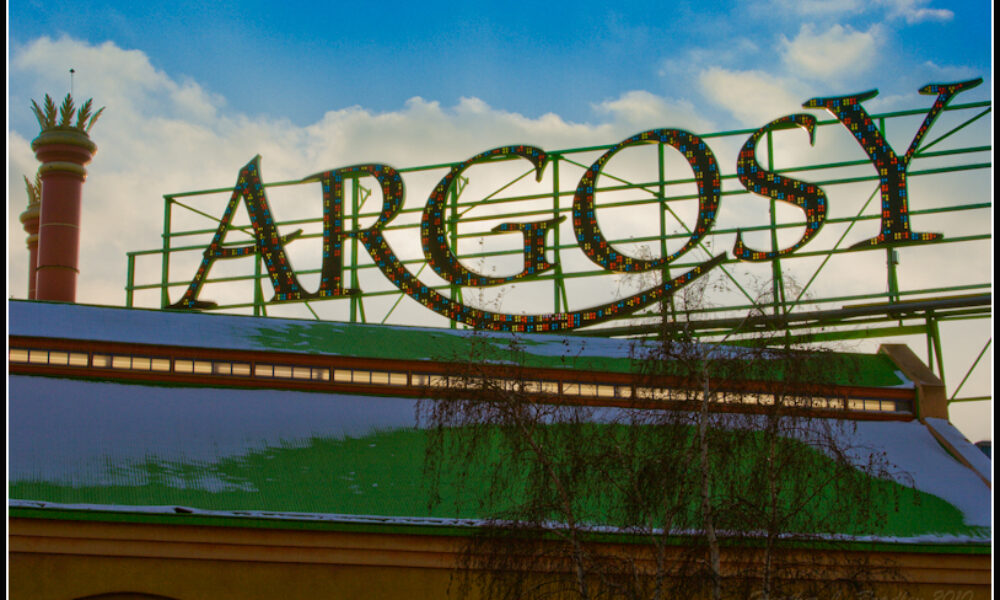A state representative in Illinois has authored a bill to allow the three most underperforming casinos in the state to apply to move to better locations. State Representative Joe Sosnowski said, “It’s been clear for years that there’s definitely a handful of casinos that do better than others.” House Bill 4070 doesn’t mandate it, but it allows for those casino operators to put in a request and then bid out for a new location.”
Sosnowski is right about one thing: Some casinos make more than others. Rivers Casino in Des Plaines is near O’Hare Airport; it generates nearly three times as much in gaming revenue as its closest competitor. For the first four months of 2025, Rivers produced $163.9 million in gross gaming revenue (GGR). Wind Creek in the south suburbs of Chicago took second place with $60.7 million; third place was Hard Rock Rockford with $47.4 million. The three weakest casinos — Danville, Argosy Alton, and Walkers Bluff — generated a combined GGR of $35.4 million.
The representative’s concern is not for the owners or shareholders of the three bottom casinos, but for the state. He wants to recover the lost employment opportunities and tax revenue. In truth, that’s why Illinois has expanded its gaming several times. Illinois is always in need of more money for a governor’s pet projects. In 1990, Illinois legalized riverboat casino gaming. Ten licenses were authorized and in September 1991, the riverboat in Alton set sail. It was an instant success with long lines of people waiting to board. In its first year, the GGR was $58 million. But that was then; in 2024, the GGR was $34 million.
The success was short-lived; competition quickly ate into the casino’s revenue. In response to the increased competition from neighboring states, in 1999, Illinois passed a law allowing riverboats to stop sailing and dock permanently. But it has not been competition from other states that has crushed the Argosy Alton. The competition within the Land of Lincoln is very, very intense.
In 2009, the state passed the Video Gaming Act. The Act permits video lottery terminals in restaurants, bars, truck stops, and veteran and fraternal organizations. VLTs got off to a slow start, but as of 2025 there are nearly 50,000 VLTs in Illinois in 8,600 locations. For the first four months of 2025, the state’s VLTs generated $1.0 billion in GGR as compared to $618 million for the 17 casinos. The number of casinos is another part of the story.
As if the 2009 legislation were not enough, in 2019, Illinois passed more gaming expansion legislation. That bill authorized six new casinos and one additional VLT in each location. Once again, poor little Argosy Alton had more competition.
But wait, there was still another shoe to fall: sports wagering. Sports betting is enormously successful in Illinois, at least in its mobile form. Gamblers put up nearly a billion dollars a month remotely in Illinois.
There is yet one more shoe that might fall, online casino gambling. Igaming has not passed yet, but it certainly has supporters among the lawmakers who see it as a golden goose probably better than the casinos, VLTs, lottery, and sports combined.
Besides the competition, Argosy Alton is geographically challenged. It is a long way from population centers in Illinois. The nearest city is St. Louis, Missouri, 21 miles away. But even in Missouri, four casinos are closer to potential customers than Alton. Back in Illinois in those first four months, Argosy attracted 127,000 gamblers, while Rivers had just short of a million. Location, location, location!
That is the dilemma for Argosy Alton and other small casinos everywhere. The market is crowded and the competitors are probably spending more on updating their properties and marketing than the little guys can afford.
Beginning in 1988, gaming began to spread in this country. The expansion included Indian gaming and commercial gaming. Commercial gaming in the early days was limited to casino gambling. Primarily, there were two models: remote mining towns and riverboat gambling. Both limited the amount that could be wagered and discouraged aggressive marketing.
As the expansion grew, it included more states and other operating models, including major metropolitan areas; Chicago has several casinos in the surrounding suburbs and Bally’s is building a billion-dollar resort in the city’s heart. As the expansion gained momentum, other forms of gaming were introduced, like the VLTs, retail and mobile sports betting, and igaming, now in seven states. Gambling has become ubiquitous. It is everywhere.
And that means there are no really good places left. And if there was one in Illinois, Argosy would not get the license; a larger wealthier corporation would step in and be awarded the license. It is true, all of the good things have been taken or will be soon by someone with buckets of money, political influence, and time to make the deal.




